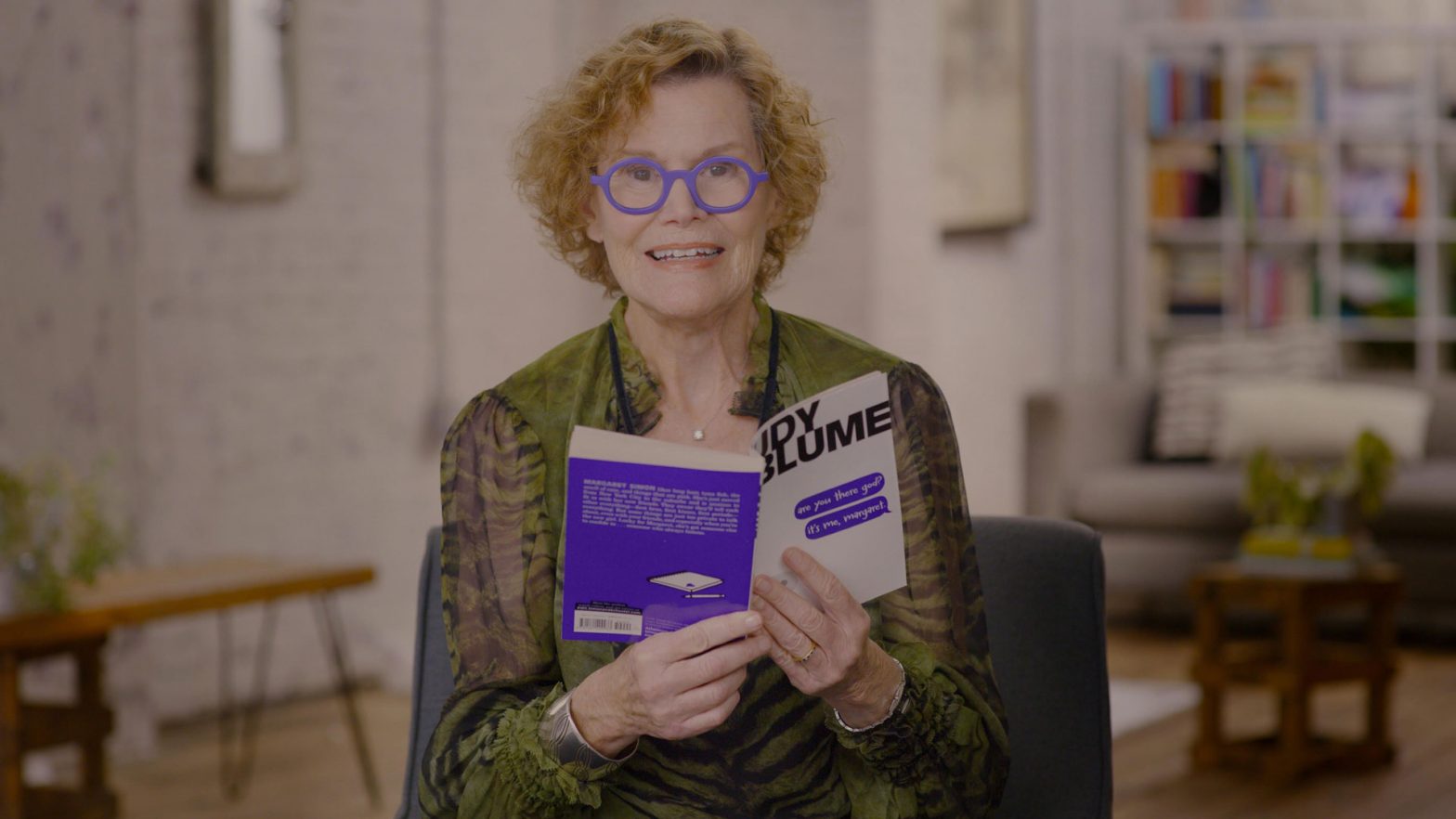The beauty of Judy Blume Forever, Davina Pardo and Leah Wolchok’s outstanding documentary, is, whether you’ve read Blume’s books repeatedly or not at all, you will be touched, amused, riveted, and even moved by her story.
For generations of kids, Blume is a beacon of empathy, a haven of straight talk among the most awkward and confusing parts of growing up. In bestselling young adult novels like Tales of a Fourth-Grade Nothing, Blubber, and Forever, she openly confronted subjects like menstruation, bullying, and sex with a candor that kids seldom heard from their parents or teachers. Blume’s popularity remains undimmed with the release of Judy Blume Forever, as well as a film adaptation of her perennial classic, Are You There, God? It’s Me, Margaret.
Judy Blume Forever is largely told by the funny, engaging author on camera, with interviews, photographs, and clips interspersed throughout. Her decades of professional storytelling shine through in her consistently interesting autobiographical commentary. Blume, now 85, was raised in a repressed atmosphere where sex was a forbidden subject. Married at 21, she settled into life as a New Jersey housewife, but burned inside to write. After multiple rejections, her first book, The One in the Middle is the Green Kangaroo, was published, then her third novel, Are You There God? It’s Me Margaret, became a breakout bestseller.
Vividly recalling her own childhood frustration with adults constantly “keeping secrets” from her and other kids, she approached her writing with complete commonsensical frankness. “I could be fearless in my writing in a way that maybe I wasn’t always in my life,” Blume explains. Young readers responded intensely to her candor, and Blume became a kid-lit icon.
The millions of youngsters gobbling up her books began turning to her as a confidant, and she received thousands of letters, frequently about things they felt uncomfortable discussing in their own families. Some of Judy Blume Forever’s best sequences feature these heartfelt messages juxtaposed with contemporary interviews with women, including author Lorrie Kim, who’d begun corresponding with Blume as children. They describe the positive impact she’s had on their lives—and Blume’s deep sense of respect, and responsibility to them, is genuinely noble.
Judy Blume Forever also delves into the author’s status as one of America’s most-banned young adult writers. Blume’s staunch anti-censorship in the face of sexist, puritanical suppression only increases her likability. A priceless clip shows windbag Pat Buchanan launching into a tirade against Blume on a talk show, in which she responds with a hilarious rejoinder about his fixation on masturbation.
Despite flaws in its sound mix—the background score sometimes threatens to overpower the interviewees’ comments—Judy Blume Forever is a wonderful film that vibrantly reminds us how profoundly fiction can enrich human lives. It avoids being mealy-mouthed and is tempered with a no-nonsense frankness. And, as the title Judy Blume Forever suggests, it proves that Blume’s work remains evergreen and timeless.
Judy Blume Forever
NR, 97 minutes
Amazon Prime
